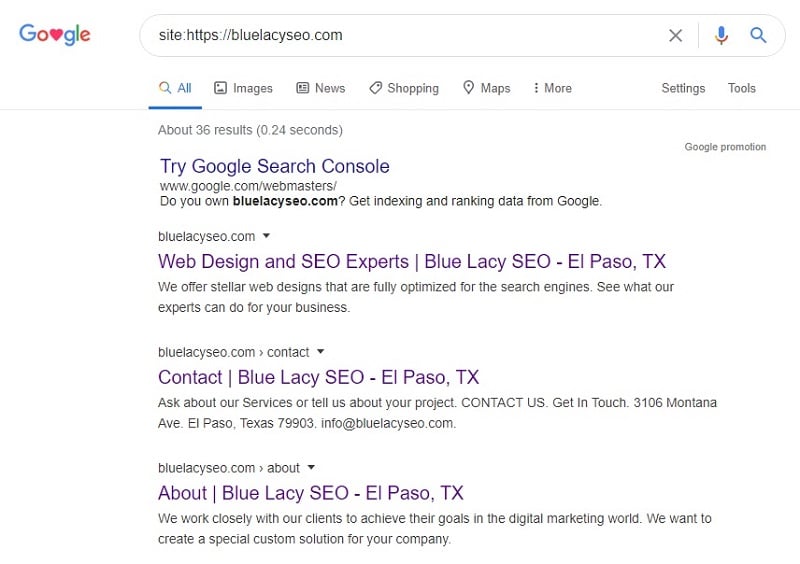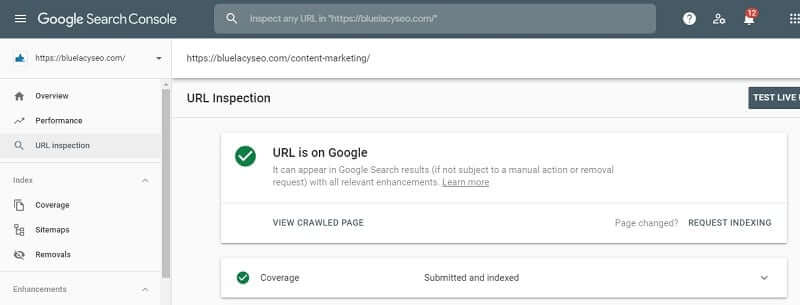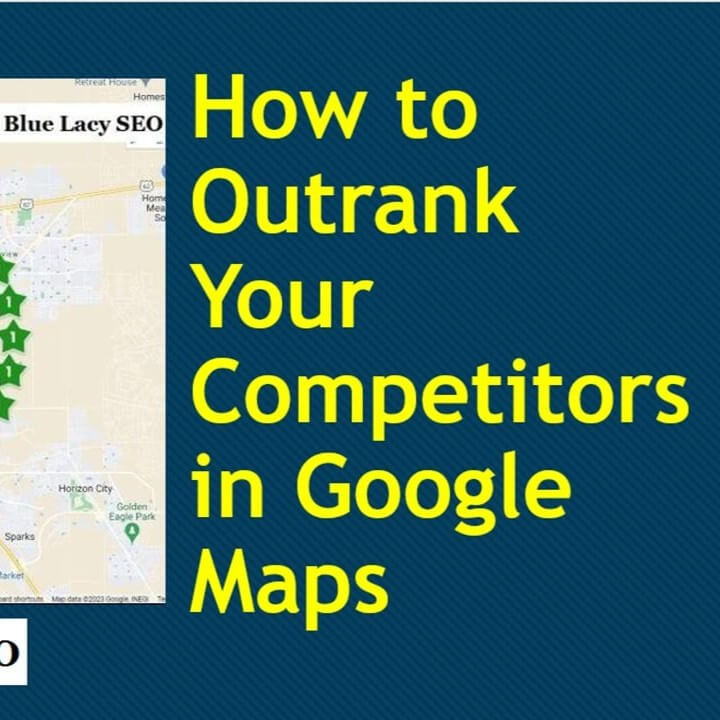To answer the subject line of this post, I first need to clarify a couple of things. You need to know the difference between having your content crawled by the search engines, such as Google, and indexed by the search engines.
- Crawled. This is where the search engine robots find your website and read the contents.
- Indexed. After a website is crawled, it is put in an index, which can then be called up when someone searches for a term related to a page on your site.
You can find out which of your pages have been indexed by typing “site:https://yourwebsite.com” into a web browser, without the quotes.

All your important pages should be in this indexed list. If there are pages missing, there is something wrong that needs to be investigated. Don’t worry if non-important pages are not in the index. These could include a privacy policy page or thank you page.
If you have a brand new website, no one knows it exists except you and people you told. But, don’t worry, the search engines will eventually find it.
When Blue Lacy SEO launches new client websites, we immediately submit their site to Google Analytics and Google Search Console, plus Bing Webmaster Tools. When this is done, Google and Bing immediately know your site exists and will crawl your site.
What if a page isn’t being indexed?
If you find that an important page on your website isn’t being indexed, do the following:
- Connect to your Google Search Console. If you don’t have Search Console or Google Analytics installed, do it right away. There are many articles on the web that will show you how to do that. If your website is managed by a web design agency or SEO company, they should already have those installed and running.
- Use URL Inspection. Once inside Search Console, click on URL Inspection on the left side of the screen. Type in the URL you want checked. Search Console will then check if your page is in the index. If you see a green check mark, as shown below, you are good to go.
- Page is not indexed. If you find a red X, which means the page is not in the index, you can click REQUEST INDEXING. If the page has been up for awhile, but not indexed, this could point to a problem.

Reasons why your content hasn’t been indexed
- It doesn’t meet Google’s quality guidelines, such as automatically generated content, participating in link schemes, or little original content.
- The content may not be relevant or is of such poor quality that Google chose not to index it. If your content is not better that what is on the search engine results pages, why would Google even bother with it?
If your site is new, wait a few weeks or months for Google to make sense of your content in order to rank it. After six months, if your site has little or no improvement in ranking, have an SEO professional look at your site and content.
Your Website Status
Google actually filed a patent on their procedure for finding a website, crawling the pages, and indexing the pages it found.
Understand that Google doesn’t rank websites, it ranks pages. According to the patent, Google goes through a long procedure in a series of steps to determine where the page will rank based on search queries.
This is why it sometimes takes awhile for a piece of content to appear in the search engine results, especially if it is new content.
My content isn’t showing up in search results
What if your content has been crawled and indexed by Google, but is not showing up in the top 100 results for keywords related to the content?
It simply means that your content is not relevant, not written well, and is not meeting the needs of the web searcher. Google is always going to show the best content that meets the needs of the user.
If you are writing about the new iPhone, so are thousands of other people. To rank on the first page, your content needs be top notch and better than most of the information out there. That means a lot of research and work.
If you have all the technical SEO parts done correctly on your website and you produce great content, sites may still out-rank you simply because they have better backlinks, social media engagement, or they did better research.
You may have spent hours cultivating and writing your new content only to find out what you are writing about is in an area that is over-saturated. Hundreds, or even thousands of people have written about the same thing.
That’s why you need to do proper research, not only on the topic itself, but also if it is relevant to what people are searching for and how much has been written about the topic.
There are millions of blog posts out there on all kinds of subjects. What new or better information do you have to offer? If you don’t have anything new, don’t write about it.
What we do with new content
When we produce new content, such as a blog post, we immediately submit the new content in Search Console instead of waiting for Google to find it, crawl it and index it. This is to prevent someone finding the content before Google does, copying the content and posting it as their own. If the scraped content is indexed before our original content, we could get tagged as having duplicate content.
We explain to our clients that getting pages on their website ranked is a process that takes time. In this day and age people are not really patient about waiting to see results in weeks or months.
To complicate matters, no one knows all the ranking factors for Google. Some websites get their content ranked quickly and up high in the rankings simply because of their domain authority (DA). So, then people say, increase my DA! But, increasing your DA takes time, sometimes years for a competitive niche. There just isn’t a magic solution.
Conclusion
Writing good content and getting it ranked is not easy and it’s time-consuming. If you need help with your content, contact Blue Lacy SEO.


